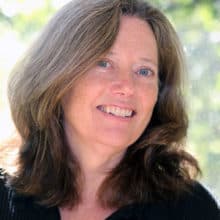Monday, March 9, 1868
The Convention was called to order on Monday at 10 o’clock, Mr. Pres. Cowles in the Chair.
Mr. Ashley called up the special order on education for its second reading.
The only amendments offered were as follows:
Section 3d was amended by striking out the word “Primary.”
SEC. 3. Each County of the State shall be divided into a convenient number of Districts, in which one or more Primary Public Schools shall be maintained at least four months in every year; and any County which shall fail to comply with the aforesaid requirement of this section shall be liable to indictment.
The section, as amended, was adopted.
Section 6th was amended by adding after the word “accrued,” in the fourth line, the words, “to the State;” strike out “to the State,” in the fifth line; after the words “escheats,” on fifth line, insert “unclaimed dividends.”
SEC. 6. The General Assembly shall provide that the benefits of the University, as far as practicable, be extended to the youth of the State free of expense for tuition; also, that all the property which has heretofore accrued to the State, or shall hereafter accrue from escheats to the State, unclaimed dividends, or distributive shares of the estates of deceased persons, shall be appropriated to the use and benefit of the University
The section, as amended was adopted.
All other sections were read and adopted.
The vote on final passage of the article stood yeas – 87, nays – 20.**
The Convention adopted at its second and third reading the article on revisions to the constitution.
Mr. Tourgee offered a resolution to appoint a committee of three to determine whether President Cowles not being a registered voter under the provisions of the Reconstruction Acts will affect the validity of the acts of the Convention. After considerable discussion, the resolution was adopted. Messrs. Rodman, Heaton and Pool were elected as a committee by the Convention.
At the time the resolution was offered, President Cowles was in the lobby. On his return, he addressed the Convention, stating in part*:
I do not intend at this time to say one word to sway the minds of delegates for or against. I am a little surprised at the suddenness of the introduction of this resolution. I feel a little mortified and think I can discover something personal.
It seems that some delegates have been goaded to this course by a paper in this city, whose charges were beneath notice. Its stabs were meant for every loyal delegate here.
I have never faltered in my support of the Union. In 1860, when no one would take office [of Postmaster] under Mr. Lincoln, I did so. [Applause.] That brought this investigation upon me. During the war I was arrested from time to time, my farm devastated, and I suffered for my loyalty. So when the war was over I claimed to be Postmaster again, and it was given to me. I was never required to take the oath anew.
Now when the State seceded, I wrote a letter which was opened and read. A vigilance committee waited on me at my home, and informed me that I had written this letter saying that I would not hold office under the Confederacy. There was a home guard parade that day, and the rabble were clamoring in the street. They told me it was too serious a matter to be trifled with. They had hung a negro a day or so before on my lot. So I consulted with my wife, and a loyal friend, who told me that I would be hung unless I submitted for his letters had been intercepted.
Now when the iron-clad oath was tendered to me, my conscience and not the fear of punishment prevented my taking it. When the reconstruction oath was tendered, I hesitated, because I thought Congress might relieve me. My friends ran me for the Convention. I did all I could then, and was returned with the highest vote on the ticket. Coming here to take a back seat, I was elevated to the Presidency much to my astonishment.
I have no more to say now – the matter is with the committee. [Applause.]
Mr. Abbott moved that he occupy the chair during the investigation. Put and unanimously carried.
The Convention reconvened for the evening session at 7:30 p.m. The Convention swiftly addressed several articles of the constitution. The report of the committee on Suffrage was read and the Article passed its second reading by a vote, yeas—61, nays – 19. The Article on Eligibility to Office passed its second reading by a vote, yeas – 51, nays – 34. The report of the Committee on the Judicial Department passed its second reading by a vote, yeas – 62, nays – 12. The article on Justices of the peace also passed its second reading, yeas – 56, nays – 5. One substantive amendment was adopted that was offered by Mr. Tourgee to make it permissive rather than mandatory that a new trial be provided in this section:
SEC. 2. . . . The party against whom judgment shall be rendered in any civil action may appeal to the Superior Court from the same, and if the judgment shall exceed twenty-five dollars, there shallmay be a new trial of the whole matter in the Appellate Court;…
On motion, the Convention adjourned.
Resources
Ferrell, Joseph, ed., Compilation of the Official Report of the Proceedings of the Convention (Chapel Hill, N.C.: unpublished manuscript 2007). (See day 8 for fuller explanation of this resource.)
*The debate and other quotes are close to verbatim from the reported resources with some adjustment to put all comments in first person, present tense.
**While this was the second reading, it appears that it also was the third and final reading. This article is not brought up again for reading and adoption.


